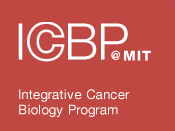| Title | Mena invasive (MenaINV) promotes multicellular streaming motility and transendothelial migration in a mouse model of breast cancer. |
| Publication Type | Journal Article |
| Year of Publication | 2011 |
| Authors | Roussos, ET, Balsamo, M, Alford, SK, Wyckoff, JB, Gligorijevic, B, Wang, Y, Pozzuto, M, Stobezki, R, Goswami, S, Segall, JE, Lauffenburger, DA, Bresnick, AR, Gertler, FB, Condeelis, JS |
| Journal | J Cell Sci |
| Volume | 124 |
| Issue | Pt 13 |
| Pagination | 2120-31 |
| Date Published | 2011 Jul 1 |
| ISSN | 1477-9137 |
| Keywords | Animals, Breast Neoplasms, Cell Line, Tumor, Cell Movement, Cytoskeletal Proteins, Female, Macrophage Colony-Stimulating Factor, Macrophages, Mice, Mice, SCID, Neoplasm Invasiveness, Neoplasm Metastasis, Protein Isoforms, Rats, Transendothelial and Transepithelial Migration |
| Abstract | We have shown previously that distinct Mena isoforms are expressed in invasive and migratory tumor cells in vivo and that the invasion isoform (Mena(INV)) potentiates carcinoma cell metastasis in murine models of breast cancer. However, the specific step of metastatic progression affected by this isoform and the effects on metastasis of the Mena11a isoform, expressed in primary tumor cells, are largely unknown. Here, we provide evidence that elevated Mena(INV) increases coordinated streaming motility, and enhances transendothelial migration and intravasation of tumor cells. We demonstrate that promotion of these early stages of metastasis by Mena(INV) is dependent on a macrophage-tumor cell paracrine loop. Our studies also show that increased Mena11a expression correlates with decreased expression of colony-stimulating factor 1 and a dramatically decreased ability to participate in paracrine-mediated invasion and intravasation. Our results illustrate the importance of paracrine-mediated cell streaming and intravasation on tumor cell dissemination, and demonstrate that the relative abundance of Mena(INV) and Mena11a helps to regulate these key stages of metastatic progression in breast cancer cells. |
| DOI | 10.1242/jcs.086231 |
| Alternate Journal | J. Cell. Sci. |
| PubMed ID | 21670198 |
| PubMed Central ID | PMC3113666 |
| Grant List | CA100324 / CA / NCI NIH HHS / United States CA126511 / CA / NCI NIH HHS / United States CA150344 / CA / NCI NIH HHS / United States CA77522 / CA / NCI NIH HHS / United States GM58801 / GM / NIGMS NIH HHS / United States R01 GM058801-12 / GM / NIGMS NIH HHS / United States U01 CA105490 / CA / NCI NIH HHS / United States U54 CA112967 / CA / NCI NIH HHS / United States |
